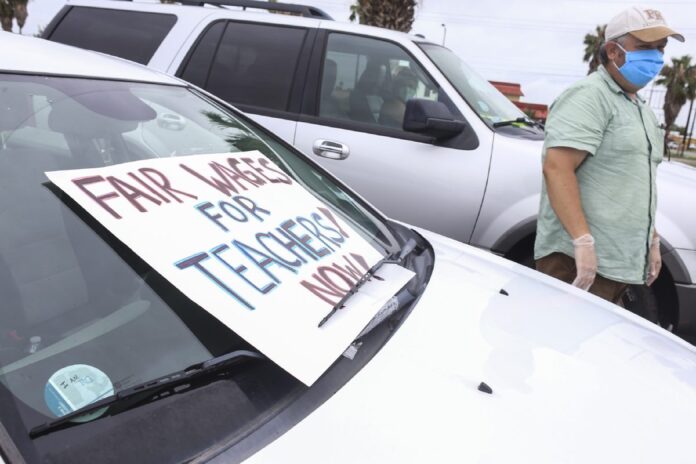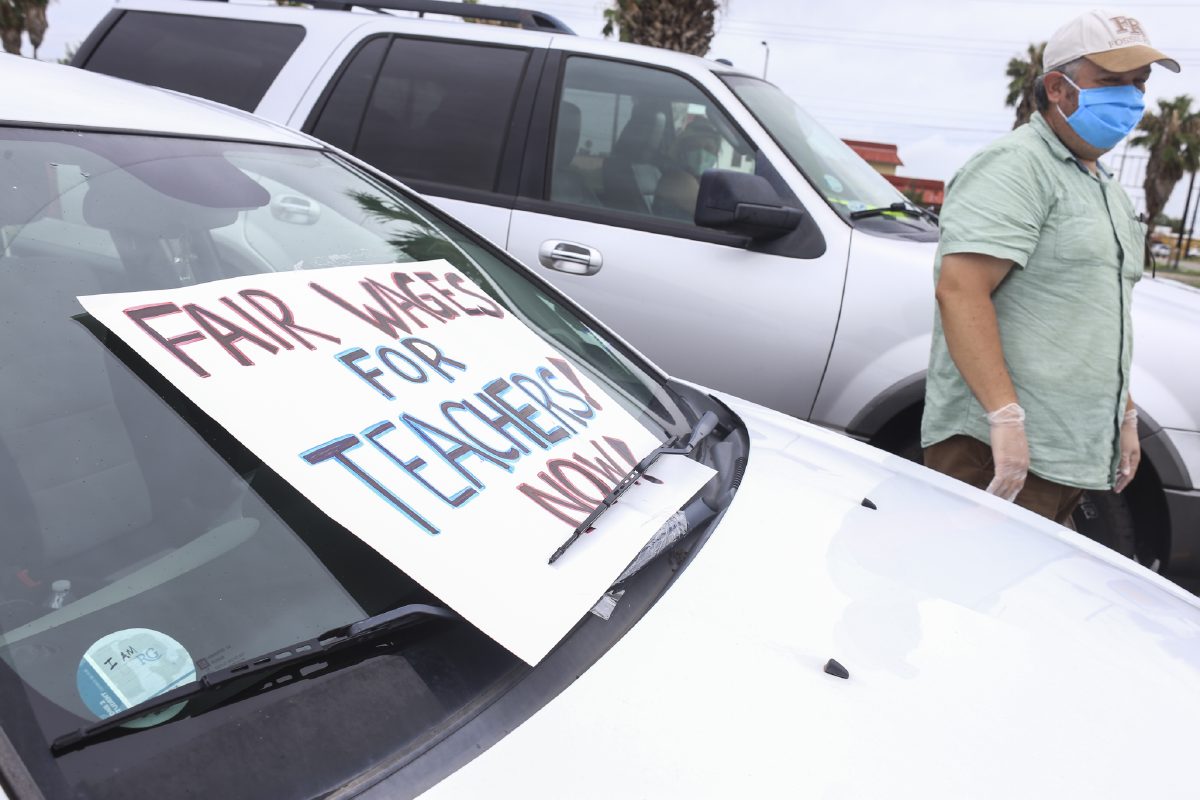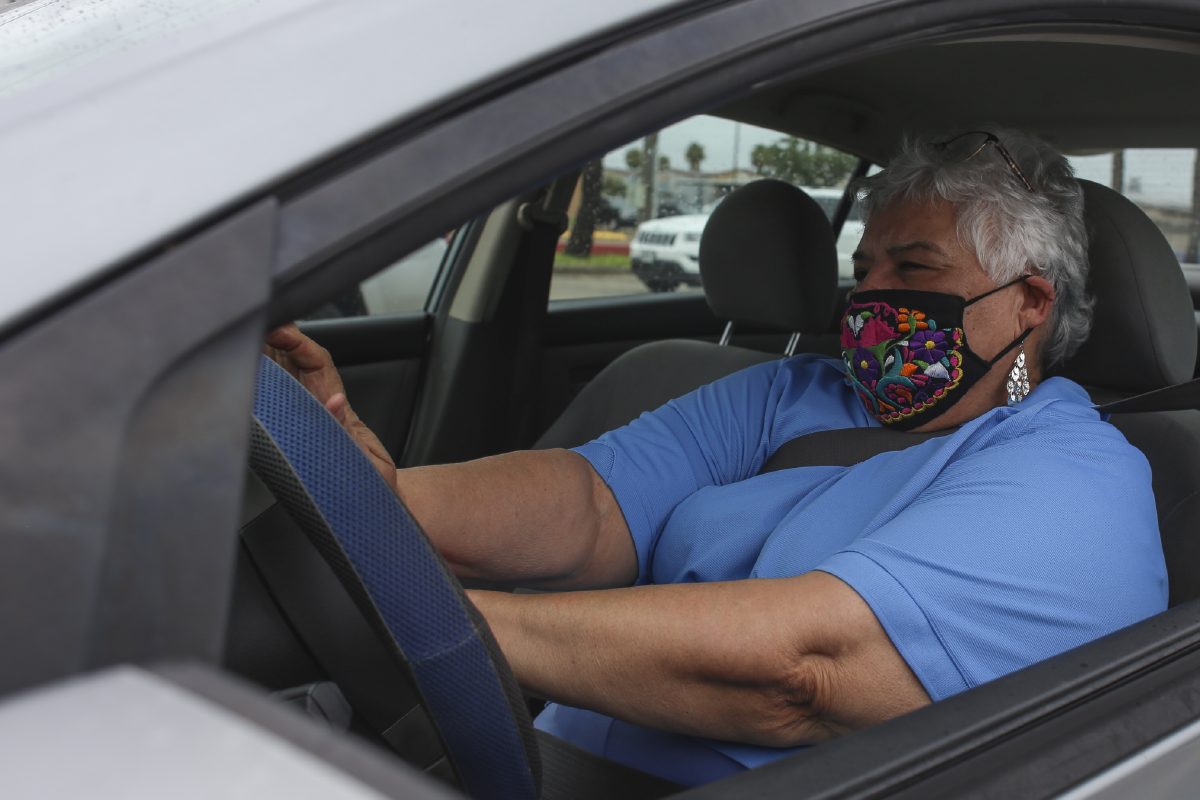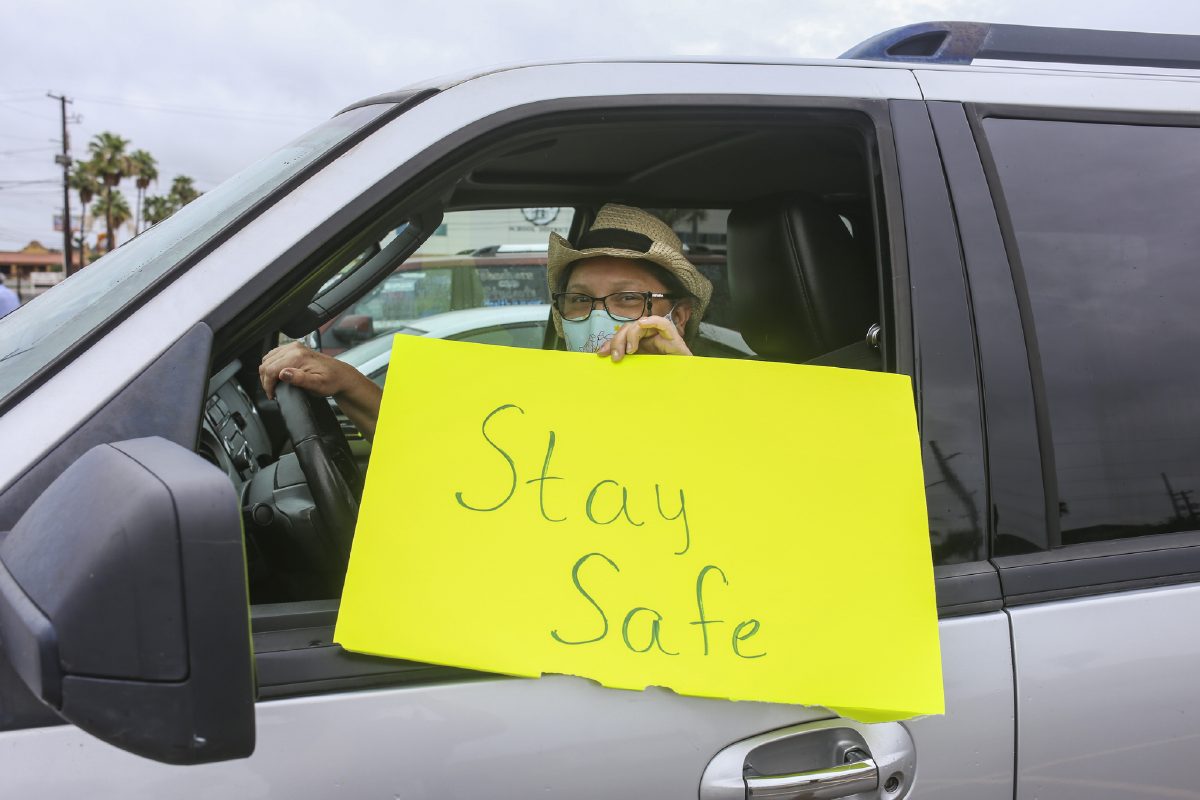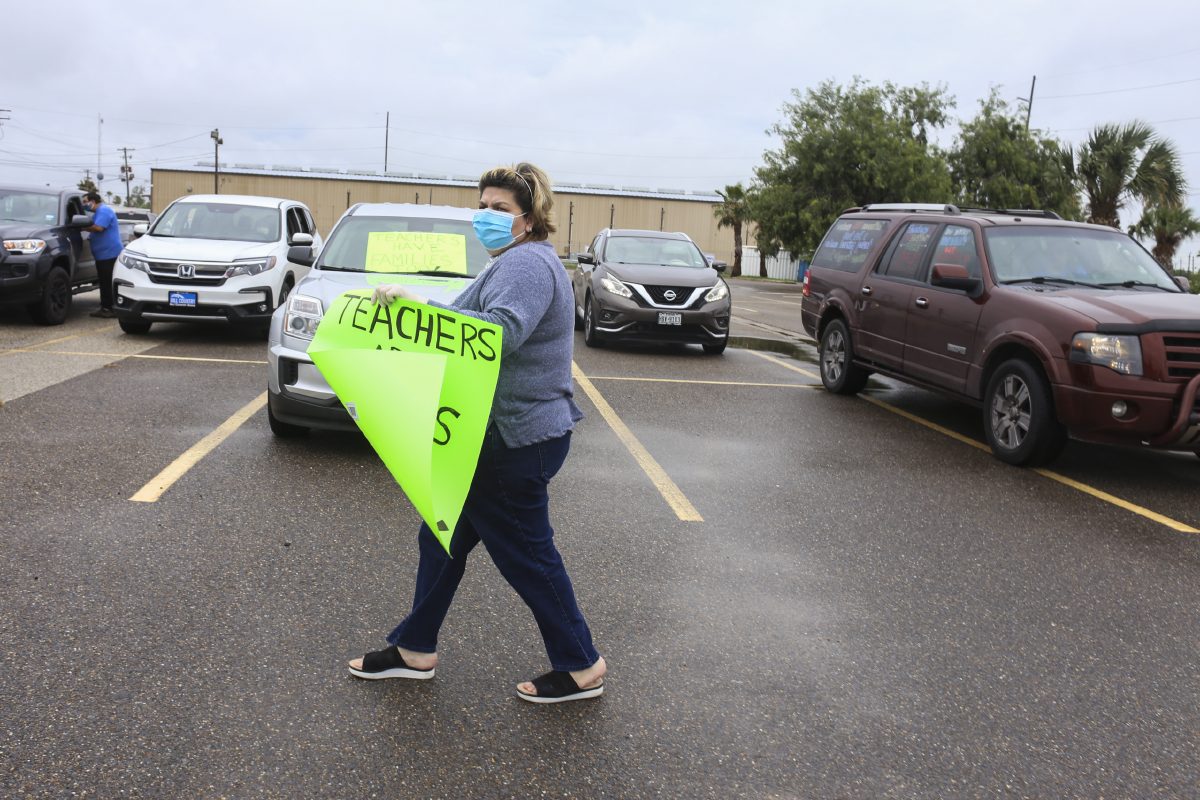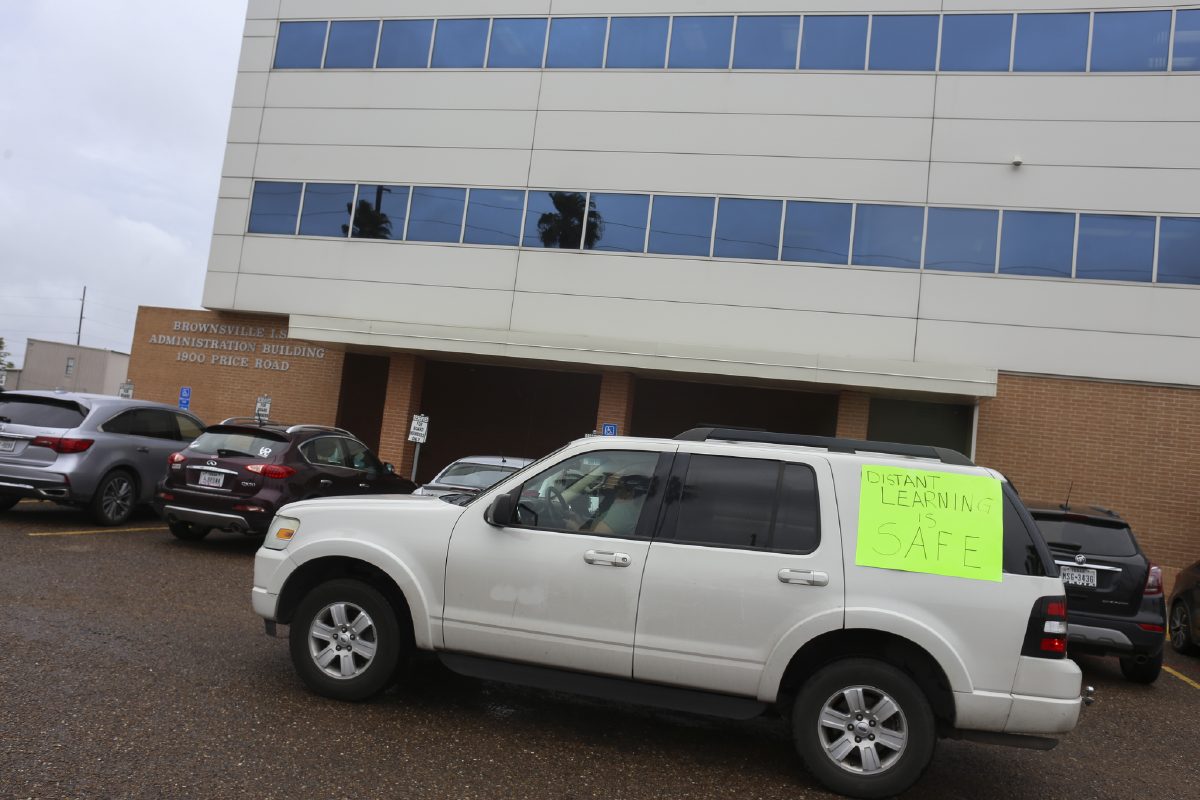BY ERIN SHERIDAN and GARY LONG, Staff writers
BISD teachers and staff protested outside the school district’s headquarters on Price Road Thursday afternoon as a Special Called Board Meeting began inside.
Around 25 vehicles driven by employees had their horns honked for nearly an hour, and workers held up signs through windows, urging district leadership to take their concerns about the upcoming school year seriously.
Organized by the Association of Brownsville Educators, the demonstration came in light of a proposed budget for the 2020-2021 school year that employees say will cut their pay and place them, their students, and families at extreme risk under Gov. Greg Abbott’s push to reopen schools in the fall.
At the meeting, the BISD Board of Trustees unanimously approved both a $558 million budget and a compensation plan that begins a process for adjusting all BISD employees to market value. Teachers and librarians received 3 percent raises and classified employees 4 percent.
However, the compensation plan was passed with direction from the board for administration to look for approximately $1.1 million in leeway to allow the district to fund $2,000 in raises for teachers rather than the $1,680 that was approved.
Trustee Philip T. Cowen moved to approve the compensation plan as presented by administration and Trustee Drue Brown seconded. An earlier motion by Trustee Eddie Garcia to approve the compensation plan but table it pending adjustments to fund $2,000 raises immediately failed by a 2-4 vote. Board president Minerva Pena also voted in favor. The money would have had to come from the district’s fund balance.
Cowen said afterward that BISD lost $13 million in state revenue, yet still was able to give $9 million in raises. He pointed out that the lowest wage for classified and manual trades employees went from $7 an hour to $11 an hour.
BISD initiated a salary study in August through the Texas Association of School Boards that seeks to equalize BISD salaries and bring them up to par with other Rio Grande Valley districts. The compensation plan represents the first phase of a plan to raise BISD salaries about $5,000 to bring them in line with other Valley districts, Anysia R. Trevino, deputy superintendent for Curriculum and Instruction, said.
Patrick Hammas, a representative of the teachers union Brownsville Educators Stand Together, said he was disappointed at the level of raises that teachers and librarians received.
“We’re last in pay in the Rio Grande Valley and yet we’re the only ‘A’ rated district from here to San Antonio,” he said.
“They want us back on August 5,” said a BISD history teacher from his vehicle. Much of the staff wished to remain anonymous. “I, for one, got sick right before spring break and they still don’t know what I had, but I was so sick that I was quarantined for two months. I lost lung function. I was on my way to get medication when I saw the protest,” said the teacher.
“On the off chance that this wasn’t COVID, then I might be susceptible to it and I’m going to be sitting in a classroom where there’s no way on God’s green earth that you can socially distance 30 kids in a 24 x 24 classroom. That’s impossible. What they’re talking about right now is putting a lot of people’s lives and livelihoods at risk.”
The teacher said BISD wanted him to come in to sign paperwork, forcing him to refuse. “I said no, you can talk to my union rep, because if something happens to me, you’re not going to pay my bills. And for what, the paperwork?” he finished.
Texas public schools will be required to provide in-person instruction in some form for students this fall, but state education officials have delayed releasing final public health guidelines for keeping them safe on campuses during the pandemic.
“We are unable to give final guidance today on on-campus instruction. We are actively monitoring the situation, and we will try to get out final information as quickly as possible,” Texas Education Commissioner Mike Morath said during a Tuesday briefing of school superintendents who had been expecting him to outline the agency’s reopening guidelines.
Before Thursday’s meeting BISD Superintendent Rene Gutierrez said he and other superintendents are still awaiting guidance from Morath on whether and how schools are going to be able to provide in-person instruction to students.
Gutierrez said he feels it would be best to start school remotely for the first six weeks and bring back the students later as conditions warrant while adhering to guidance from the Centers for Disease Control and Prevention.
Maribel Martinez, AOBE’s president, explained why members chose to take action. “We didn’t realize that when they were working on the compensation plan, people were being demoted, monies were being taken away. They were saying there’s not enough money, but there is. We started looking into it and sure enough, the proposed plan is just not right,” said Martinez.
“We have been in contact with Dr. Gutierrez, our superintendent, the deputies, HR, and all of the board. We told them you know what? Nobody has sat down with us to hear our concerns. That’s not good. Without us, there is no school district. The other thing is our safety.”
As Martinez explained, teachers want to go back to school. The president has taught special education for 26 years, but the alleged lack of an adequate safety plan to reopen schools has both her and colleagues worried.
“Are the students going to wear masks? I know that we are. If one person is sick, everyone around there will have to go home. I don’t think there’s a plan for that,” she said, adding, “We need to practice the plan first. Maybe for the first six weeks, then start bringing the kids back in.”
According to Martinez, the survey school district officials sent out to parents likely didn’t reach those who don’t have internet or computers. She urged parents and students concerned about the situation to call or email members of the school board.

